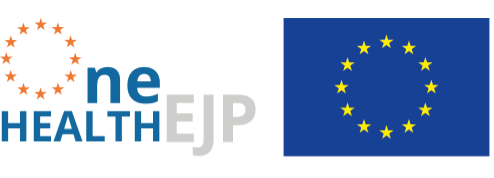What was the aim of the One Health EJP Summer School 2019?
The One Health concept recognises that human health is tightly connected to animals and the environment. Multiple reports have highlighted the need for ‘One Health’ interventions towards the delivery of better health outcomes across each of the health domains. In other words, One Health actions must contribute value over and above the status-quo traditionally characterised by isolated or domain-specific approaches. However, One Health operationalization, or the identification of concrete actions to implement the One Health concept, remains a challenge. The mechanisms to support a value-driven and efficient One Health operationalization are at the centre of the summer school.
This summer school provided:
(1) an understanding of the complexity of health challenges and how to use a One Health approach to address these.
(2) ways to identify, characterise, and quantify the drivers of value from One Health approaches across programmatic areas (e.g. prediction, detection) and stakeholders.
(3) an ability to recognise the methods and operational approaches for effective preparedness and response to One Health threats.
(4) an understanding of the application of robust monitoring and evaluation tools to implement One Health interventions.
Students learnt a number of technical and organisational skills that they practiced on a number of case studies. The programme delivered an introduction to One Health basics, prediction approaches, analyses of integrated disease surveillance, outcomes research, risk management, and decision quality
Who Was Eligible?
Bachelor’s, Masters and PhD Students and researchers from both within the One Health EJP consortium and external to the consortium were eligible to apply for the Summer School.
When?
19th-30th August 2019
Where?
The University of Surrey, UK and Chatham House, London, UK
Testimonials
“…This really has been an exceptional experience for me. I met so many great people from different cultures and made some friends (personals and professionals) for life. I have learnt so much from the lecturers. It was an amazing opportunity to see beyond my scientific background and see One Health from a whole new different aspect. Thank you again!”
“Thank you very much for an excellent and interesting two weeks of learning a lot of new knowledge and fantastic new people”
“The OHEJP Summer School has been a great experience and opportunity to learn new approaches related to One Health issues from sessions given by experienced lecturers, but also a good opportunity for knowledge exchange within a very diverse group of participants from different backgrounds and nationalities”
“It was a really amazing course. I met many professors who were experts in One Health. I also very much appreciated Dr Victor Del Rio Vilas who always stimulated the class and summarized the thoughts and discussion at the end of each section. The delegate group was also wonderful and created very thought-provoking and interactive discussions. Moreover, I have almost 20 new friends from different countries and different backgrounds. Thank you very much for such an unforgettable school at University of Surrey, UK
“This has been two very enriching weeks both professionally and socially providing optimal opportunities to interact with and exchange feedback from other delegates and experts within the various aspects of the One Health approach”
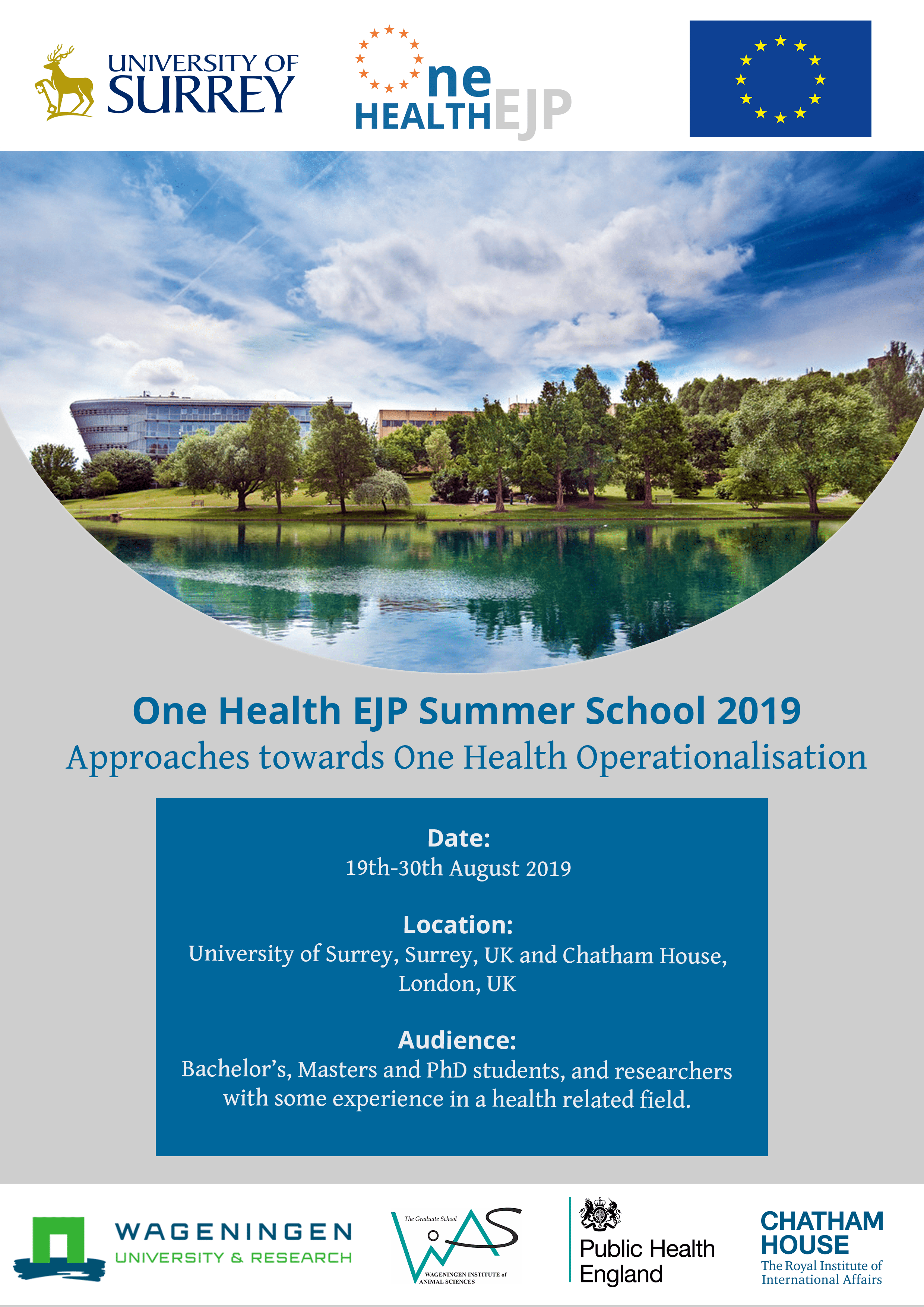
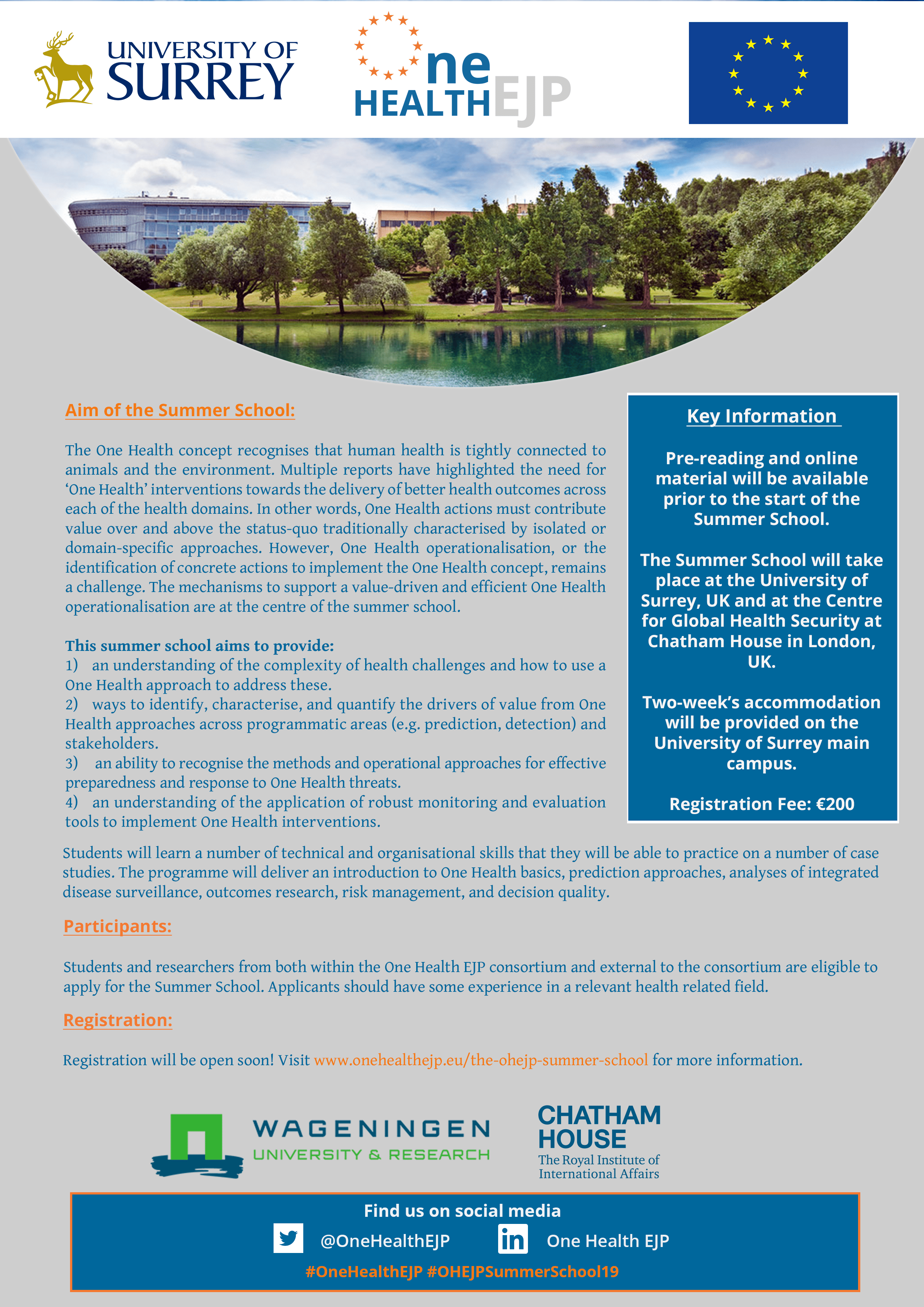
Our Speakers
Victor Del Rio Vilas
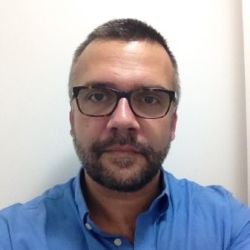
Victor Del Rio Vilas (DVM, MBA, MSc (Epi), PhD, MRCVS) is currently at the Dept of Epidemiology, School of Veterinary Medicine, University of Surrey (UK), and at the Centre on Global Health Security at Chatham House, London. Until January 2018 he worked at the World Health Organization (WHO-Geneva) on the development of WHO’s epidemic vulnerability evaluation framework. Until November 2016, Dr Del Rio was a consultant with the Pan American Health Organization (PAHO/WHO), based in Rio de Janeiro (Brazil) with regional responsibilities. In that capacity, Dr Del Rio advised Ministries/Departments of Health across the region on epidemiology, surveillance and control measures for a number of diseases such as rabies, leishmaniasis, yellow fever and on zoonoses programmatic issues. He also contributed to WHO’s global response to the Ebola Virus Disease outbreak in Liberia in 2015; previously worked in Uzbekistan implementing the Biological Threat Reduction Program (Defense Threat Reduction Agency, US DoD), and as veterinary advisor and epidemiologist for UK´s Department for Environment, Food and Rural Affairs (Defra) and the Veterinary Laboratories Agency.
Dr Barbara Haesler
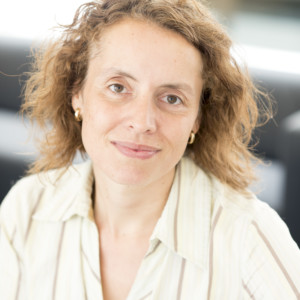
Dr Barbara Haesler is a Senior Lecturer in Agrihealth at the Royal Veterinary College (RVC) and the London Centre for Integrative Research on Agriculture and Health. She is a veterinary researcher with expertise in food systems, economics applied to animal health and One Health, and evaluation. Her research focuses on food system change and the implications in terms of foodborne and zoonotic disease, food and nutrition security, and sustainability. She is interested in interdisciplinary approaches to understand challenges and identify solutions at the level of the system. From 2014-2018 she coordinated the international Network for Evaluation of One Health and then became an active member in the consortium’s continuation as the Network for Ecohealth and One Health – a European Chapter of the Ecohealth International Trust. She teaches on various undergraduate and postgraduate courses at the RVC and is the local lead person for the programme Interdisciplinary Food Systems Teaching and Learning, a cross-university learning initiative.
Prof. Wim H. M. van der Poel

Prof. Wim H.M. van der Poel, DVM, PhD, is senior scientist at Wageningen Bioveterinary Research and special Professor of ‘Emerging and Zoonotic viruses’ at Wageningen University. He is the chair of the Scientific Committee of the International Research Consortium for Animal Health and member of the Project Management Board of the European Joint Program One Health (One Health EJP). He also coordinates the EPIZONE European Research Group, the network on epizootic animal diseases research. The research work of Prof. Van der Poel involves at least three main areas: New and emerging viruses, Infection and epidemiology of zoonotic viruses, including hepatitis E virus, and ‘Global One Health’.
Arthur E. Attema
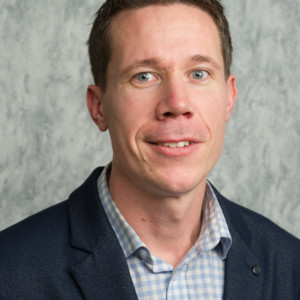
Arthur E. Attema is an associate professor at the Health Economics Department of the Erasmus School of Health Policy & Management (ESHPM) in Rotterdam. His main research interests include behavioral and experimental health economics, utility measurement, and intertemporal choice. Arthur obtained an MSc degree in Economics at the University of Amsterdam (cum laude) and an MSc degree in Health Economics at Erasmus University Rotterdam. He is in the management board of the Behavioral Experiments in Health Network (BEHnet). In 2015 and 2017, he was listed in the Dutch Economists Top 40. Arthur published in renowned economic journals such as American Economic Review, Economic Journal, Management Science and Journal of Health Economics.
Kayla Strong
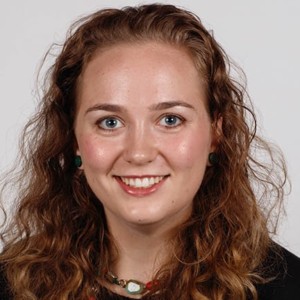
Kayla Strong is a Risk Lead at the University of Cambridge Centre for Risk Studies, and is responsible for stress test scenario development and insurance clash modelling research. Kayla completed her bachelor’s degree in Geography at the University of Waterloo, and her Master’s degree in Risk and Security at Durham University. Prior to her employment at the Centre, Kayla supported Canadian police services in crime trend analysis. Kayla’s academic interests relate to disaster planning and social resilience.
Professor Andrew B. Lawson
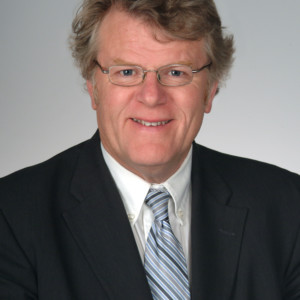
Dr Lawson is Professor of Biostatistics in the Division of Biostatistics and Bioinformatics, Department of Public Health Sciences, College of Medicine, MUSC and is an MUSC Distinguished Professor and ASA Fellow. He was previously a Professor of Biostatistics in the Department of Epidemiology & Biostatistics, University of South Carolina, SC. His PhD is from the University of St. Andrews, UK and was in Spatial Statistics.
He has over 175 journal papers on the subject of spatial epidemiology, spatial statistics and related areas. In addition to a number of book chapters, he is the author of 10 books in areas related to spatial epidemiology and health surveillance. The most recent of these is Lawson, A.B. et al (eds) (2016) Handbook of Spatial Epidemiology. CRC Press, New York, and in 2018 a 3rd edition of Bayesian Disease Mapping; hierarchical modeling in spatial epidemiology CRC Press. As well as associate editorships on a variety of journals, he is an advisor in disease mapping and risk assessment for the World Health Organization (WHO). He is founding editor of the Elsevier journal Spatial and Spatio-temporal Epidemiology. Dr Lawson has delivered many short courses in different locations over the last 15 years on Bayesian Disease Mapping with OpenBUGS and INLA, Spatial Epidemiology and disease Clustering and Surveillance. Website: https://education.musc.edu/MUSCApps/facultydirectory/Lawson-Andrew
Jean-François Guégan
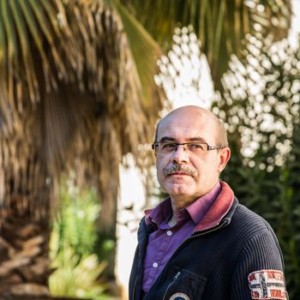
Jean-François Guégan is a theoretical ecologist and ecological parasitologist interested in the ecology, evolution and policy-decisions on human zoonotic infectious diseases and their host vectors or reservoirs. He obtained his Ph.D. in parasite ecology and epidemiology in 1990 from the University of Montpellier (France), and did a post-doc in 1990-1991 at Exeter University in Great Britain. In 1991, he was hired as a junior researcher at IRD, the French Institute for Research on Sustainable Development. As a full-tenured Research Professor, with the highest rank in France, he led during 16 years a research group on Dynamics of Systems and Infectious Diseases in the joint national team called UMR MIVEGEC at Montpellier. He recently joined INRA to develop a OneHealth research approach based on his previous professional experiences. He has worked on cholera, pertussis, measles, avian flus and West Nile virus through an integrative research perspective. He is now particularly involved in research on the neglected emerging tropical disease, Buruli ulcer in Africa and southern America, being an expert for WHO, and more generally on the theoretical relationships between biodiversity, climate change and emerging infectious diseases. As part of his duties at IRD and INRA, JFG is also an adjunct Professor at Montpellier University where he is teaching a course on global environmental change and health, and a Professor at EHESP, the French School of Public Health, where he is also teaching Planetary Health and is a track leader for courses on Environmental and Occupational Health Sciences, an Erasmus Mundus Excellence in European Education training from both the EHESP’s Master of Public Health and EuroPubHealth. Guégan is also a scientific adviser for the global research project oneHEALTH from the U.N.E.P. FutureEarth programme. He is responsible for the writing of up to 160 international scientific papers, 11 hard-books and up to 150 international conferences. As a former fellow of the French High Council for Public Health, he (co)-led different French national reports on Climate Change and Health, Adaptation to Climate Change, and Emerging Infectious Diseases: research actions and planning. He is responsible for organizing an annual research action Seminar, called School of Val-de-Grâce’s Seminar, on emerging infections to improve sensitization of political leaders and civil society actors on societal risks associated with these new emerging threats. He has been the PI or co-Pi of 14 national and international grants, 9 of which on the epidemiology of infectious diseases.
David Bartram

David Bartram (BVetMed DipM CDipAF DipECSRHM MPhil FRCVS) graduated from the Royal Veterinary College, University of London, in 1988. After three years in production animal veterinary practice, he moved into the pharmaceutical industry where he has worked, in both human and animal health sectors, for over twenty years. He is currently Director of Outcomes Research for Zoetis international operations with responsibilities for ruminants, a role which involves demonstration and communication of evidence of the economic, functional or emotional value of animal healthcare interventions from the perspective of different stakeholders. David holds professional qualifications in marketing and finance and was awarded the British Veterinary Association Chiron Award (2013) for outstanding contributions to the veterinary profession. He has published multiple original scientific papers, many with first name authorship.
Joaquin M. Prada
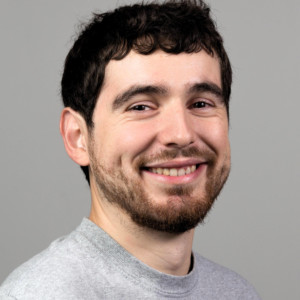
Joaquin is a Lecturer in Veterinary Epidemiology at the University of Surrey. After finishing his Engineering Degree, he moved to the Vet. School at the University of Glasgow for a PhD modelling sheep and nematode interactions. He then joined the Ecology and Evolutionary Biology department at Princeton University as a postdoctoral research associate, before moving to the Mathematics department at the University of Warwick, where he worked modelling control and elimination interventions for a wide range of diseases. He then started his current position at Surrey, with a focus on informing policy decision-making, enhancing understanding of diagnostics and modelling infectious disease dynamics using machine learning and other statistical tools. Currently, he collaborates with the NTD modelling consortium and is a member of the NTDhub; he works on a wide range of infectious diseases, from macro-parasites (Lymphatic filariasis, Schistosomiasis and helminths) to Viruses (Measles, FMDV), in both humans and animals.
Gianni Lo Iacono

Gianni Lo Iacono is a theoretical physicist/mathematical modeller working at the interface between mathematics physics and biology.
His initial research at Rothamsted focused on physics of turbulence, insect dispersal and then epidemiology studying evolution of pathogen in response to crop resistance. Gianni then moved to the department of veterinary medicine at the University of Cambridge focusing on the link between ecosystems and zoonotic diseases with special interest in Lassa fever and Rift Valley fever. He then spent a few years in Public Health England investigating the link between environmental changes and infectious diseases with special interest in the seasonality of water-borne and Gastrointestinal diseases.
Gianni current research interest focuses on formulating and applying mechanistic models to investigate impact of environment and societal changes on diseases, including vulnerability and resilience of countries to diseases.
Prof dr Henk Hogeveen
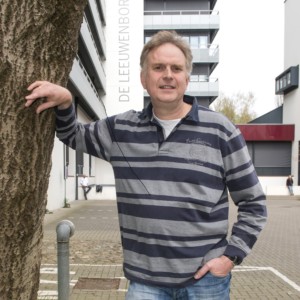
Professor Animal Health Management at the Business Economics group of Wageningen University. Being raised on a dairy farm, Henk Hogeveen graduated as MSc from Wageningen Agricultural University in 1989. He wrote MSc theses on the field of Epidemiology and Animal Health Economics. From 1989 until 1994 he worked as associated researcher at the Department of Herd Health and Reproduction of the Faculty of Veterinary Medicine of Utrecht University, where he received a PhD in the field of mastitis diagnosis. After a short employment at the former Institute for Agricultural and Environmental Engineering in Wageningen, he started as a scientific researcher in the field of herd health and management at the Applied Cattle Research Institute in Lelystad (nowadays part of the Wageningen UR Livestock Research), followed by a position as cluster manager welfare, health and milk quality at that institute. Since 2001, Henk Hogeveen is working in academia, currently as personal professor at the chair group Business Economics of Wageningen University and the Department of Farm Animal Health of the Faculty of Veterinary Medicine of Utrecht University His teaching activities are mainly directed at economics of animal health, agricultural business and veterinary business in BSc, MSc and PhD courses. His research activities are focused on the management of animal health. Within that field he has developed a special interest for the support of decisions on animal health using economics in a one health framework.
Henk Hogeveen is, amongst other memberships, member of the IDF Standing Committee Animal Health and was chairman from 2008-2012. He has more than 150 peer reviewed scientific publications in highly ranked international journals and besides that many publications in scientific proceedings and trade journals. He is a frequently asked speaker on conferences.
Afifah Rahman-Shepherd
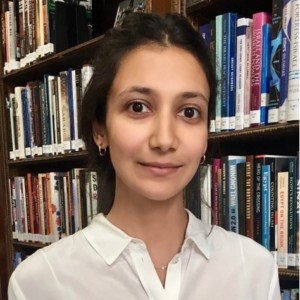
Afifah joined the Centre as a Research Analyst in 2017, focusing on the concept of ‘One Health’ and threats to health security that arise at the human-animal-ecosystems interface. In 2019, Afifah became a Research Associate having expanded her scope of work beyond One Health to issues of national and subnational preparedness for health security, the governance and accountability challenges to monitoring preparedness, and more recently the opportunities and challenges to achieving Universal Health Coverage in the last decade of the Sustainable Development Goals (SDGs).
Prior to joining Chatham House, Afifah worked at the Centre for Global Health and Education at the Institut Pasteur, Paris, and consulted for the WHO Global Observatory on Health R&D. She previously worked at the National University Health Systems, Singapore, and has research experience in south and south-east Asia. She received her MSc from the London School of Hygiene and Tropical Medicine in 2016.
Bengü Said

Bengü is an epidemiologist in Public Health England’s Emerging Infections and Zoonoses team. Initially trained in microbiology, she has extensive experience in reference, research and diagnostic microbiology. For nearly 20 years she has worked in infectious disease surveillance and epidemiology with a focus on zoonoses and emerging infections, including responding to incidents and outbreak investigations.
Dr Matteo Convertino

Dr. Convertino is an Associate Professor in the Graduate School of Information Science and Technology and GSB Station for Big-Data & Cybersecurity at Hokkaido University, Sapporo (JP). He is the PI of the Nexus Group that is focused on theoretical, computational and applied biocomplexity. Additionally he is also Adjunct Professor at the Institute on the Environment, Institute for Engineering in Medicine, and the Bioinformatics and Computational Biology program at the University of Minnesota Twin-Cities. He also holds an affiliation with the International Institute for Applied Systems Analysis, Austria. Dr. Convertino got his PhD in Biocomplexity Engineering from the University of Padova (under the auspice a joint program between Padova and Princeton University) and MSc and BSc in Civil and Environmental Engineering at the University of Padova.
Dr. Convertino expertise is in biocomplexity multiscale modeling focused on environmental and biological dynamics and their nexus with population patterns at multiple scales of organization. Unveiling the “language of nature’’ and its fate is Dr. Convertino’s group driving interest in a way to preserve and design ecosystem health. Dr. Convertino’s research work spans the areas of collective behavior, biomimicry, ethorobotics, deep-learning and information theoretic modeling, network inference, pattern analysis/non-linear dynamics, global uncertainty evaluation, systemic risk analysis, physiophysiology/biomedicine, computational ecology, computational epidemiology/health and toxicology, fluid dynamics and ecohydrology, geomorphology, climate change impact assessment, quantitative public policy and sustainability.
The research is sought via process- & pattern-oriented theoretical and computational models based on information and network sciences, statistical physics, as well as bioinspired technology. Models are applied to a variety of ecosystems for understanding their biological, ecological, and social function as well as for value-based ecosystem design and eco-biological engineering. Dr. Convertino’s work resulted into 75+ publications, one book in press, two patents, various quantitative based governmental policies in USA, and model deployment in industry and government. Major funding of Dr. Convertino’s group are from NSF, CDC, WHO/PAHO, MN state, 3M and Microsoft among others.
Dilys Morgan

Dilys Morgan MBE has had an interesting career alternating between medical research in rural Africa and UK public health.
Dilys is currently Head of Emerging Infections and Zoonoses at Public Health England, London. She has been responsible for developing the Emerging Infections and Zoonoses portfolio of the Agency, including establishing horizon scanning activities and risk assessment processes for emerging infectious threats. Since the majority of new and emerging infections are zoonoses, she set-up the Human Animal Infections and Risk Surveillance group (HAIRS) in 2003. This multiagency, multidisciplinary group meets every month and acts as a forum to identify and discuss infections with potential for interspecies transfer.
She is also an honorary Professor at the London School of Hygiene and Tropical Medicine.
Maria Grazia Dente

Maria Grazia Dente is currently a senior researcher at the Center for Global Health of the Italian National Institute for Public Health. She is a public health expert and experienced project manager, has specific expertise in the fields of international cooperation, preparedness, surveillance and control of infectious diseases and cross-border health threats, migrant health. She has relevant experience in working with large scientific networks including the multi-institutions and multi-financed projects EpiSouth and EpiSouth Plus (27 EU and non-EU country partners) for which she has been the coordinator since its institution in 2006. Since 2014, she is key expert for public health aspects of arbovirus infections of the European One Health Project MediLabSecure that involves 22 countries of the Mediterranean, Middle East, Balkan and Sahelian Regions. In the framework of MediLabSecure, she has lead several studies and activities aimed at reinforcing One Health approach for the surveillance and risk assessment of arbovirus infections. In addition, Dr Dente has specific technical knowledge on migrant health due to her participation in several international Projects such as the EC PROMOVAX (Promote vaccination among migrant population), ECDC EURO MoMiH (Monitoring Migrant Health) and a specific know-how on the health policy implications of research outputs.
Gilberto Montibeller

Gilberto Montibeller is a Full Professor of Management Science and the Associate Dean for Enterprise at Loughborough University. He joined Loughborough in 2015 after spending a decade as a tenured faculty in the Department of Management at the London School of Economics. He has a BSc in Electrical Engineering (UFSC), MSc in Engineering Economic Analysis (UFSC) and PhD in Engineering Economic Analysis (UFSC/Univ. of Strathclyde).
Prof Montibeller is an expert on strategic risk and decision analysis. His main areas of application are global health prioritisations and health risk management, having led projects for the World Health Organization, Pan-American Health Organization, UK Department for Environment, Health and Rural Affairs (DEFRA), UK Department of Health, the Food and Agriculture Organization of the United Nations (FAO), USAID, among others.
Prof. Montibeller is Associate Editor of the Informs Decision Analysis journal and has served as area editor of the Journal of Multi-Criteria Decision Analysis. He has published widely in top journals in decision sciences. The quality of his research has been recognised by best publications awards from the Institute for Operations Research and the Management Sciences (Informs), the Society for Risk Analysis, and the International Society on Multi-Criteria Decision Making.
He has been a visiting scholar at the Massachusetts Institute of Technology (MIT), the University of Southern California, the International Institute for Applied Systems Analysis (IIASA, Austria), and CNRS Lamsade at Paris Dauphine University (France). He is a visiting professor at the University of Sao Paulo (Brazil).
Helen Roberts

Currently Defra’s policy advisor for Equine, Pets and New and Emerging diseases, science and risk. I am also responsible for animal health input into horizon scanning across the government agencies and departments for the UK as well as the biosecurity programme in Defra and for the cross government international natural hazard forward look. I am a member of the UK Veterinary Risk Group and the Public Health England-led Human-Animal Interface Risk Surveillance group as well as the EFSA Animal Health and Welfare Panel and EFSA’s AHAW Network.
I hold a BSc (Hons) and PhD in parasitology from Imperial College, London, UK; I spent ten years in academia in the UK including field work in Colombia and a secondment in Australia, studying neglected tropical diseases, then several years working for international health NGOs (on human health issues, such as malaria and school children’s health). In 2007 I joined Defra, and became part of the outbreak response teams for avian influenza, foot and mouth disease and bluetongue. In 2008 I joined the international trade team in Defra and then head of international disease monitoring and risk assessment in the Animal and Plant Health Agency, Defra, UK in 2010. I am involved in international training in risk assessment for disease outbreaks and food safety for EU programmes (BTSF, TAIEX, Accession programmes) as well as other international programmes and a regular member of working groups for EFSA, the European Commission on the new Animal Health Regulations and FAO on emerging animal health issues.
Francesca Contadini

Francesca is a public health veterinarian working as a teaching fellow at the University of Surrey. After graduating from the University of Turin, she became involved with public health at an international level, collaborating with charities (WVS, Vets Without Borders) and academia in various countries. She then further specialized during a residency in veterinary public health and preventive medicine at the University of Minnesota, where she also gained her Masters in Public Health and became board certified by the American College of veterinary Preventive Medicine. Here she collaborated with Zoetis on the implementation of the use of a Quality of Life measure for dogs in veterinary practice, which she is continuing at the University of Surrey.
Marcel Verweij

Since 2013 I am a Professor of philosophy at Wageningen University. My group works on practical philosophy in relation to key themes of Wageningen University: health, food, nature, animals, environment. The university’s mission is to explore the potential of nature to improve quality of life – which as such is a great source for philosophical and ethical questions: What is quality of life? Whose quality of life? How do we balance promoting human interests and preservation of nature? What are our obligations to future generations?
My research and teaching cover a very broad area in applied philosophy and ethics, including animal ethics and business ethics, but the primary focus is public health. Together with Angus Dawson (University of Sydney) I initiated public health ethics as a new area of studies in moral philosophy. We are founding Editors-in-Chief of Public Health Ethics, a journal published by Oxford University Press. The journal is now the centre of a flourishing interdisciplinary scientific field.
My view on practical philosophy is to build bridges between theoretical analysis and practical moral problems in professional areas or public policy. This has resulted in in-depth analyses of problems in public health, such as: how far should professionals go in promoting health of citizens; what responsibilities do citizens have to take precautions against infection; and how should governments allocate scarce medical resources during an influenza pandemic. These are questions about health that go far beyond a medical-professional perspective; they concern responsibilities of all societal actors to contribute to health and quality of life.
My philosophical approach to practical societal issues is also the key in various consultative roles, for example for the World Health Organization. Since 2005, I have been member of the Health Council of the Netherlands and contributed to more than 20 advisory reports for the Minister of Health, including reports on collective vaccination, screening, preconception counselling, special policies for high-risk groups, and expert reports on Q-Fever and Mexican Flu.
Kathryn Callaghan

Dr Kathryn Callaghan graduated with a First Class Honours Degree in Microbiology and Microbial Genetics at the University of Dundee. Following her Doctorate Degree studying the taxonomy of Clostridium botulinum (at the University of Reading), she worked at a number of Government departments before joining Defra in 2017. Kathryn works in Defra’s Chief Scientific Adviser’s Office, leading a team coordinating international science partnerships for Defra’s labs and agencies, and supporting a more joined up One Health approach to Defra’s international science offer to deliver better outcomes for plant, animal, human and environmental health.
Elizabeth Mumford
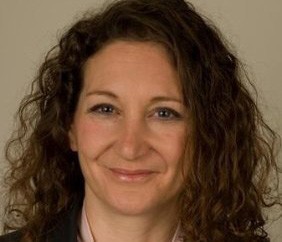
Elizabeth Mumford is a senior public health veterinarian committed to taking a One Health approach to improve global health. She has been working on technical and policy aspects of infectious diseases at the human-animal-environment interface for over 25 years in the USA, in Europe, and internationally. As a zoonotic influenza epidemiologist, she helped to shape the early international multisectoral conversations that brought the importance of working across sectors and disciplines to the policy forefront, and since then she has continued to engage as a recognized One Health leader globally. From the One Health Country Operations team at WHO Geneva, Dr. Mumford partners across sectors in development and implementation of standard mechanisms, tools, and processes to support multisectoral, One Health collaboration at the national level. Most recently, she conceived and constructed an international initiative to develop and implement standard guidance and practical operational tools to address zoonotic diseases and other health threats at the human-animal-environment interface in countries.
Mart de Jong

Mart de Jong is a Professor at Wageningen University & Research (WUR) in the Netherlands. Mart’s areas of expertise include population biology of infections, mathematical biology and statistical methods and he has a keen research interest in modelling and quantifying transmission of infectious agents and the effect of interventions on that. His current research interests include host heterogeneity (including multi-host systems and host genetics) and the role of the environmental phase of infectious agents during transmission. Mart teaches Modelling Biological Systems BSc Biology and Managing Infections and Diseases in Animal Populations MSc Animal Science.
Natalia Cernicchiaro
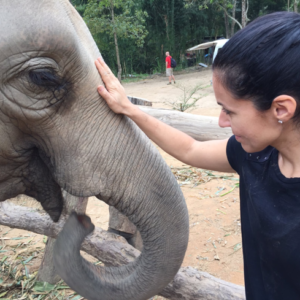
Natalia Cernicchiaro is an assistant professor of veterinary epidemiology and the associate director of research for the Center for Outcomes Research and Epidemiology (CORE) at the College of Veterinary Medicine, Kansas State University. She has a DVM degree from the School of Veterinary Medicine at the University of Uruguay, MS in Epidemiology from the University of Minnesota, and PhD in Epidemiology from the University of Guelph.
Dr. Cernicchiaro’s group focuses on the application of epidemiological concepts and techniques to design and implement research studies, as well as to analyze and interpret veterinary and public health-related data. In her research, Dr. Cernicchiaro integrates the use of core epidemiological, including multi-level and risk assessment models, and economic approaches to analyze operational datasets on animal health and performance as a way to enhance the practical understanding of animal health problems. Other research interests include the application of knowledge synthesis and translation techniques as tools to help practitioners, producers and other stakeholders making evidence-based decisions. Our research topics vary from food safety issues, emerging and transboundary diseases, animal health and animal production, to questions concerning the human and animal interface.
As associate director of research for CORE, Dr. Cernicchiaro works closely with academic, government and industry groups by providing expertise in statistical analysis of observational and experimental research data as it applies to health, production, performance and economic outcomes, as well as teaching and training of veterinary and other health-related professionals on principles for population data and other statistical and epidemiological concepts.
Steve Wyllie

Steve Wyllie is the Veterinary Head of One Health in the UK’s Animal and Plant Health Agency. After 10 years in general practice he joined the APHA nearly 30 years ago as a field vet. Since then he played a leading role in upscaling the BSE controls in the 1990s, and in running biosecurity and disposal operations during the major Foot and Mouth outbreak in 2001. For the last 12 years he has been involved in controls on zoonotic diseases and other public health hazards, integrating the science, the policy advice and operational management of incidents. He is Deputy Chair of the HAIRS group.
